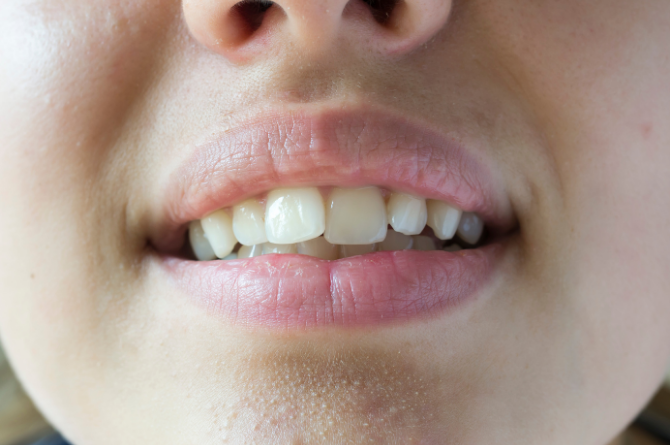Ideally, your top and bottom set of teeth should fit together perfectly with your top teeth fitted slightly over your bottom teeth. All of your teeth should line up. Your teeth should be straight and equally spaced. Most of us, however, have some degree of misaligned teeth.
If the misalignment is mild, your biting function and overall health may not be affected. However, significant teeth misalignment can contribute to mouth breathing and interfere with speaking and eating, can cause teeth to wear out early, and affect the overall appearance of your face. The dental term for a bite problem is malocclusion of teeth.
Misaligned Teeth Problems
A poor bite may also force your jaws joints into unnatural positions, resulting in prolonged inflammation and deterioration of your temporomandibular (jaw) joint, known as Temoporomandibular Disorder (TMD).
Common symptoms of TMD include frequent headache in the temple, cheeks, jaw joint and ears. Please feel free to contact us for more information on how we can help you prevent or control the damage.
Most malocclusions are inherited. Such conditions include differences in jaw size, poorly aligned jaws, crowded teeth, extra teeth, and missing teeth.
Childhood habits such as mouth breathing, tongue thrusting, reverse swallowing and thumb sucking will also alter the development of your jaws. Allergies, asthma and an open mouth posture also contribute to incorrect jaw development.
Types of Malocclusion
There are many types of malocclusion, some common ones are:
- Overcrowded teeth — this often results from childhood underdevelopment of the upper jaw, resulting in a narrow upper jaw with insufficient space for adult teeth. If your child has crowding problems, we can help!
- Overbite — top front teeth overlaps bottom front teeth
- Underbite — bottom front teeth overlaps top front teeth
- Crossbite — some upper teeth rests inside of the lower teeth; a crossbite can affect the way the jaw grows.
- Open bite — top and bottom front teeth do not touch; often due to thumb sucking or mouth breathing.
- Unevenly spaced teeth
- Protruding teeth
- Missing teeth
- Speech problems
- Discomfort when chewing or biting
- Breathing through the mouth rather than the nose
If you are not sure if you or your loved one is suffering from malocclusion, please feel free to call us for a consultation on 62820122 or WhatsApp us at (+65) 8057 7381.
Also READ: Should I be worried if my child’s teeth are coming in crooked?





